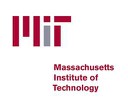Pros and cons of open source licenses
Free software is a wide range of software solutions in which the user's rights (“freedoms”) for unlimited installation, launch, and free use, study, distribution, and modification (improvement) of programs are legally protected by copyrights using free licenses.
License specifications:
1. Apache Software License
2. BSD license
3. GNU General Public License
4. MIT licenses
5. Mozilla Public License
6. World Wide Web Consortium
Apache Software License

Apache Software License - license for the free software of the Apache Software Foundation.
')
"pros"
- the right to use the software for any purpose, to freely distribute, modify, and distribute modified copies
- does not make a condition of immutability of the software distribution license
- does not even insist on maintaining its free and open status
- compatible with the GPL
"minuses"
- inform Apache about the use of source code licensed under the Apache license
- when distributing software, you must place the LICENSE and NOTICE files in the root directory (in each licensed file all original information about copyrights or patents should be saved, information on the changes made should be added to each modified file)
BSD license

BSD license, Berkeley University Software License (BSD license) is a license agreement, first used for the distribution of UNIX-like BSD operating systems.
"pros"
- one of the most popular licenses for free software and used for many programs.
- redistribution and use are allowed both as source code and in binary form, with or without modifications (under certain conditions that can be found in the BSD “modified” license)
- compared to other common free software licenses (for example, the GNU General Public License), the BSD license imposes less user restrictions
- BSD allows proprietary commercial use of software.
- many licenses are derived from BSD or they are similar to it
"minuses"
- The rights to the original BSD distribution officially belong to the “Trustees of the University of California”
GNU General Public License

GNU General Public License (sometimes translated as, for example, the GNU General Public License, the GNU General Public License, or the GNU Public License Agreement) is a free software license created under the GNU project in 1988.
"pros"
- licensing the work under the terms of the GNU GPL, the author does not waive the right to be considered its author
- the freedom to launch the program, for any purpose
- freedom to learn how the program works and to modify it (a prerequisite for this is access to the source code)
- freedom to distribute copies
- freedom to improve the program, and release improvements to public access (a prerequisite for this is access to the source code)
"minuses"
- The GNU GPL requires distribution with binary files (including unchanged) source code or a written commitment to provide it
MIT licenses

MIT License (MIT License) is a group of licenses developed by Massachusetts Institute of Technology for the distribution of free software.
"pros"
- licenses are not “copyleft”
- since there is no copyright on this license, other groups have the right to use and modify it to meet their goals.
- clearly indicates the rights of the end user, including the rights to use, copy, modify, incorporate into other source code, publish, distribute, sublicense and / or sell licensed software
- the license is considered an academic license, that is, recognized as suitable for use in the field of scientific research
"minuses"
- MIT license is most consistent with the three-point BSD License
Mozilla Public License

Mozilla Public License (MPL for short) is one of the free software licenses. Version 1.0 was developed by Mitchell Baker during her employment as a lawyer with Netscape Communications Corporation. Version 1.1 was developed as part of the Mozilla Foundation. MPL contains the features of a modified BSD license and the GNU General Public License.
"pros"
- MPL approved as open source license. Open Source Initiative
- MPL license provides poor copyleft
- adapted by other developers, especially Sun Microsystems
"minuses"
- source code copied or modified under the MPL license must be licensed under the MPL rules
- The Free Software Foundation does not recommend using the MPL in its pure form, that is, without using multiple licensing in conjunction with the GPL or a compatible license.
- the code under the MPL license can be combined in one program with proprietary files (for example, Netscape 6 and 7 were proprietary versions of the Mozilla Suite, and starting from version 8 - Mozilla Firefox. Thus, AOL Time Warner has exclusive rights to these proprietary versions Netscape)
World Wide Web Consortium

The World Wide Web Consortium (W3C) is an organization that develops and implements technology standards for the World Wide Web. The consortium is led by Tim Berners-Lee - the author of many developments in the field of information technology.
"pros"
- W3C's goal is to help computer programs achieve interoperability on the web.
- application of uniform standards on the web
- make the Network accessible to people with disabilities
- recommendations of the World Wide Web Consortium are open, that is, they are not protected by patents and can be implemented by any person without any financial contributions to the consortium
- recommendations of the consortium are structured in such a way that partial implementation does not violate common standards (some popular Recommendations have several degrees of implementation - for whom it is more convenient)
- W3C recommendations are often well developed and detailed.
- most Recommendations are available for any category of users - from expert programmers to beginner webmasters.
- The consortium as a whole pays much more attention to open source projects.
- currently the Consortium is perhaps the most authoritative organization in the field of standardization of the World Wide Web
"minuses"
- any W3C standard passes 4 stages of coordination (working draft, last convocation, possible recommendations and proposed recommendation)
upd: Thanks for the added whitedragon :
The world of licenses: we are working with the GNU GPL: habrahabr.ru/blogs/Dura_Lex/45808
World of licenses: Frequently asked questions about the GNU GPL license: habrahabr.ru/blogs/Dura_Lex/45878
The world of licenses: we are dealing with BSD licenses: habrahabr.ru/blogs/Dura_Lex/46329
World of licenses: we understand with MIT license: habrahabr.ru/blogs/Dura_Lex/46809
License specifications:
1. Apache Software License
2. BSD license
3. GNU General Public License
4. MIT licenses
5. Mozilla Public License
6. World Wide Web Consortium
Apache Software License

Apache Software License - license for the free software of the Apache Software Foundation.
')
"pros"
- the right to use the software for any purpose, to freely distribute, modify, and distribute modified copies
- does not make a condition of immutability of the software distribution license
- does not even insist on maintaining its free and open status
- compatible with the GPL
"minuses"
- inform Apache about the use of source code licensed under the Apache license
- when distributing software, you must place the LICENSE and NOTICE files in the root directory (in each licensed file all original information about copyrights or patents should be saved, information on the changes made should be added to each modified file)
BSD license

BSD license, Berkeley University Software License (BSD license) is a license agreement, first used for the distribution of UNIX-like BSD operating systems.
"pros"
- one of the most popular licenses for free software and used for many programs.
- redistribution and use are allowed both as source code and in binary form, with or without modifications (under certain conditions that can be found in the BSD “modified” license)
- compared to other common free software licenses (for example, the GNU General Public License), the BSD license imposes less user restrictions
- BSD allows proprietary commercial use of software.
- many licenses are derived from BSD or they are similar to it
"minuses"
- The rights to the original BSD distribution officially belong to the “Trustees of the University of California”
GNU General Public License

GNU General Public License (sometimes translated as, for example, the GNU General Public License, the GNU General Public License, or the GNU Public License Agreement) is a free software license created under the GNU project in 1988.
"pros"
- licensing the work under the terms of the GNU GPL, the author does not waive the right to be considered its author
- the freedom to launch the program, for any purpose
- freedom to learn how the program works and to modify it (a prerequisite for this is access to the source code)
- freedom to distribute copies
- freedom to improve the program, and release improvements to public access (a prerequisite for this is access to the source code)
"minuses"
- The GNU GPL requires distribution with binary files (including unchanged) source code or a written commitment to provide it
MIT licenses

MIT License (MIT License) is a group of licenses developed by Massachusetts Institute of Technology for the distribution of free software.
"pros"
- licenses are not “copyleft”
- since there is no copyright on this license, other groups have the right to use and modify it to meet their goals.
- clearly indicates the rights of the end user, including the rights to use, copy, modify, incorporate into other source code, publish, distribute, sublicense and / or sell licensed software
- the license is considered an academic license, that is, recognized as suitable for use in the field of scientific research
"minuses"
- MIT license is most consistent with the three-point BSD License
Mozilla Public License

Mozilla Public License (MPL for short) is one of the free software licenses. Version 1.0 was developed by Mitchell Baker during her employment as a lawyer with Netscape Communications Corporation. Version 1.1 was developed as part of the Mozilla Foundation. MPL contains the features of a modified BSD license and the GNU General Public License.
"pros"
- MPL approved as open source license. Open Source Initiative
- MPL license provides poor copyleft
- adapted by other developers, especially Sun Microsystems
"minuses"
- source code copied or modified under the MPL license must be licensed under the MPL rules
- The Free Software Foundation does not recommend using the MPL in its pure form, that is, without using multiple licensing in conjunction with the GPL or a compatible license.
- the code under the MPL license can be combined in one program with proprietary files (for example, Netscape 6 and 7 were proprietary versions of the Mozilla Suite, and starting from version 8 - Mozilla Firefox. Thus, AOL Time Warner has exclusive rights to these proprietary versions Netscape)
World Wide Web Consortium

The World Wide Web Consortium (W3C) is an organization that develops and implements technology standards for the World Wide Web. The consortium is led by Tim Berners-Lee - the author of many developments in the field of information technology.
"pros"
- W3C's goal is to help computer programs achieve interoperability on the web.
- application of uniform standards on the web
- make the Network accessible to people with disabilities
- recommendations of the World Wide Web Consortium are open, that is, they are not protected by patents and can be implemented by any person without any financial contributions to the consortium
- recommendations of the consortium are structured in such a way that partial implementation does not violate common standards (some popular Recommendations have several degrees of implementation - for whom it is more convenient)
- W3C recommendations are often well developed and detailed.
- most Recommendations are available for any category of users - from expert programmers to beginner webmasters.
- The consortium as a whole pays much more attention to open source projects.
- currently the Consortium is perhaps the most authoritative organization in the field of standardization of the World Wide Web
"minuses"
- any W3C standard passes 4 stages of coordination (working draft, last convocation, possible recommendations and proposed recommendation)
upd: Thanks for the added whitedragon :
The world of licenses: we are working with the GNU GPL: habrahabr.ru/blogs/Dura_Lex/45808
World of licenses: Frequently asked questions about the GNU GPL license: habrahabr.ru/blogs/Dura_Lex/45878
The world of licenses: we are dealing with BSD licenses: habrahabr.ru/blogs/Dura_Lex/46329
World of licenses: we understand with MIT license: habrahabr.ru/blogs/Dura_Lex/46809
Source: https://habr.com/ru/post/69780/
All Articles